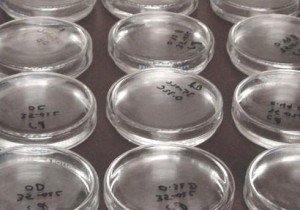A new Ministry of Agriculture and Forestry (MAF) survey has examined the antimicrobial resistance of bacteria isloated from New Zealand food, and found little evidence of drug resistant ‘superbugs’.
 The survey was undertaken to establish the current extent of resistance to antimicrobial drugs in bacteria found in food-producing animals and fresh produce.
The survey was undertaken to establish the current extent of resistance to antimicrobial drugs in bacteria found in food-producing animals and fresh produce.
Further details of the survey and links to related reports are available on the New Zealand Food Safety Authority’s website.
The survey examined bacteria such as E. Coli, Enterococcus, Campylobacter and Salmonella and found that levels of resistance to antimicrobial drugs in isolated bacteria were low and there was little indication of a threat to human health.
In veterinary medicine – as with human medicine – there is a risk that overuse of antibiotic drugs can lead to drug resistance in bacteria. In such cases, animal populations can act as a reservoir of resistant bacteria which could infect humans or transfer resistance genes to other bacteria which infect humans. The MAF survey shows this is not the situation in New Zealand.
The Science Media Centre contacted experts for further commentary on the report.
Prof Jacqueline Rowarth, Director of Agriculture, Massey University said:
“The recent headlines and mystery surrounding the E. coli outbreak in Europe, eventually tracked to a bean sprout operation, highlights the importance of food safety: people have died, others have been extremely sick, and growers have lost extraordinary amounts of money while the source of the outbreak was traced – and then there is the cost of the tracking by officials and, of course, of the medical support for those who succumbed to the bug.
“MAF’s latest survey of antimicrobial resistance in food borne bacteria in New Zealand is extremely good news for domestic consumers, and for those overseas: New Zealand food continues to be of high quality pre-farm gate. We rank with best practice countries in food safety, reflecting educated farm workers complying with excellent drug use regulations. Our veterinary professionals (ranked 8th in the 2011 ‘most trusted’ survey) do a great job, supported by MAF, in ensuring that farmers understand why the regulations exist – and the proof is in the testing.
“Although there are ongoing grumbles about the use of antibiotics in animal production systems, their use is important when animals are kept in close proximity (particularly the case for pigs, poultry, and during calf rearing before weaning). Intensive production systems allow efficiencies that cannot be achieved when animals are free range; without the use of antibiotics, food would be much more expensive.
“Though there might be problems in some parts of the world with antibiotic over-use, the MAF survey results show that this is not the case in New Zealand. Ongoing proof of pre-farm gate food safety will assist in targeting premium markets for exports, and premium returns will enable new technologies to be adopted as they are developed. At the same time, the income generated by exports supports the economy. Farmers and the rural professionals can be congratulated for enabling a great report.”